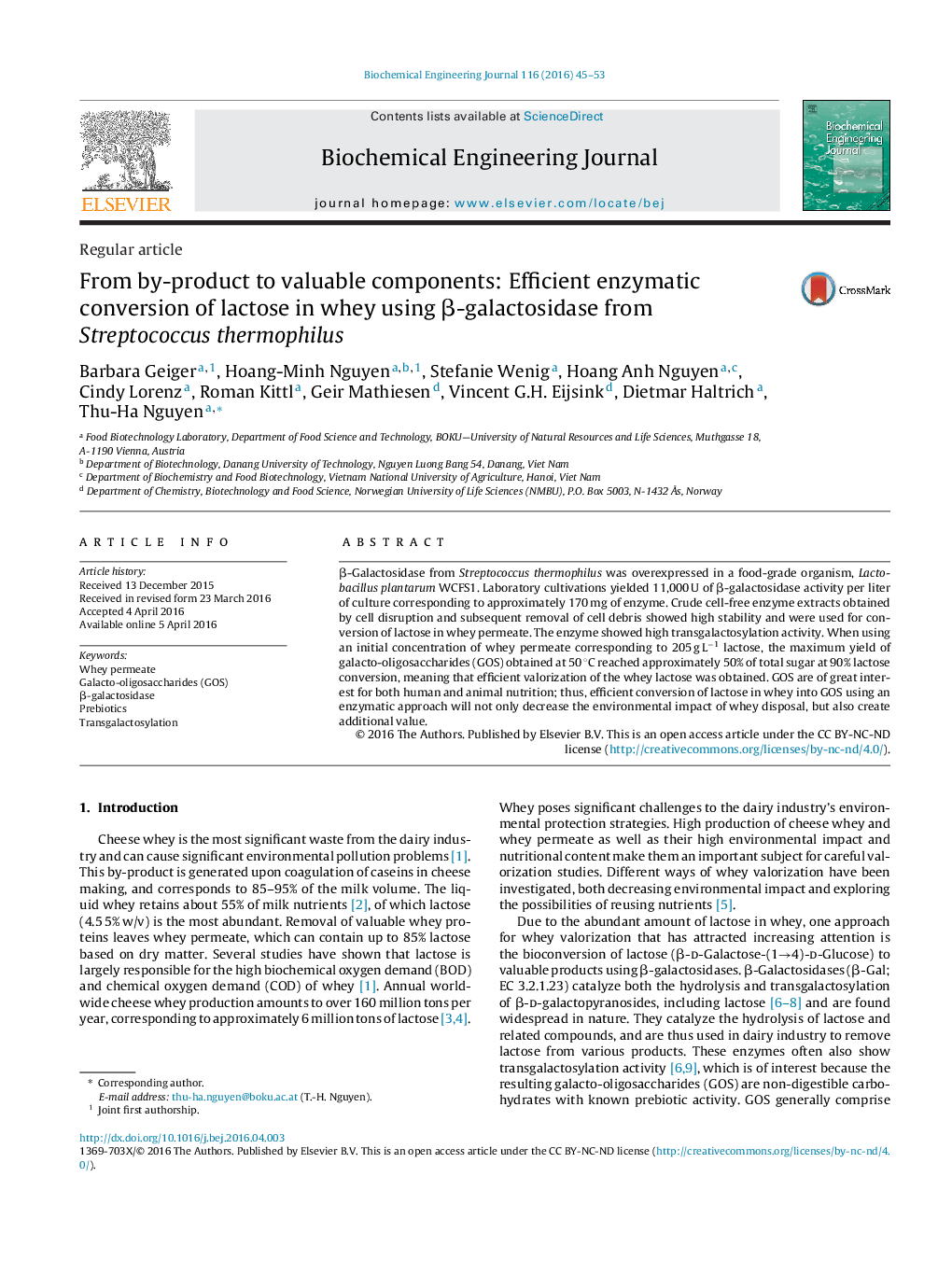| Article ID | Journal | Published Year | Pages | File Type |
|---|---|---|---|---|
| 6450458 | Biochemical Engineering Journal | 2016 | 9 Pages |
â¢Overexpression of a β-galactosidase in a food-grade host organism.â¢Efficient enzymatic conversion of lactose in whey using a crude enzyme extract.â¢Production of valuable food ingredients from an important by-product.
β-Galactosidase from Streptococcus thermophilus was overexpressed in a food-grade organism, Lactobacillus plantarum WCFS1. Laboratory cultivations yielded 11,000 U of β-galactosidase activity per liter of culture corresponding to approximately 170 mg of enzyme. Crude cell-free enzyme extracts obtained by cell disruption and subsequent removal of cell debris showed high stability and were used for conversion of lactose in whey permeate. The enzyme showed high transgalactosylation activity. When using an initial concentration of whey permeate corresponding to 205 g Lâ1 lactose, the maximum yield of galacto-oligosaccharides (GOS) obtained at 50 °C reached approximately 50% of total sugar at 90% lactose conversion, meaning that efficient valorization of the whey lactose was obtained. GOS are of great interest for both human and animal nutrition; thus, efficient conversion of lactose in whey into GOS using an enzymatic approach will not only decrease the environmental impact of whey disposal, but also create additional value.
